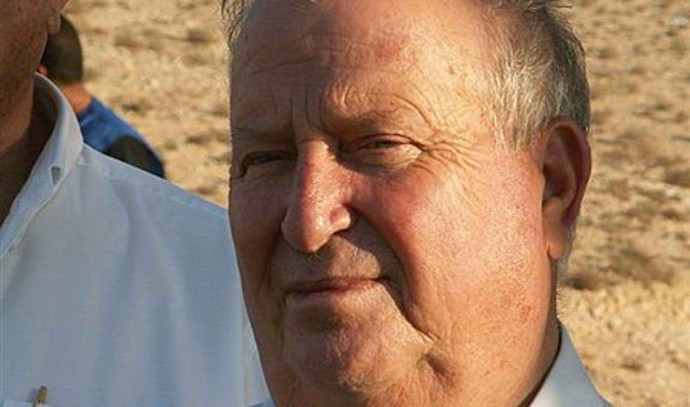The passing of former finance and infrastructure minister Avraham Shochat this week nearly marks the end of an era. Ehud Barak was the last Labor prime minister in Israel, serving from 1999 to 2001.There are few still living Labor Party stalwarts who served as ministers or Knesset members in the administrations of Yitzhak Rabin, Shimon Peres, and Barak.
Labor was the powerful political party in the first three decades of the state but gradually began to lose its grip.Avraham Shochat, who served as minister in the governments of Rabin and Barak, was in his younger days the pioneer mayor of the city of Arad, which was designated a development town when he arrived there in November 1962.
Early life and origin of his nickname
Shochat, born on the 14th of June 1936 in Tel Aviv, and his wife Tama were among the 30 founding families who came to build a city in the desert.However, he recognized Arad’s potential and oversaw positive changes and the growth of the population in 20 years as mayor. It was also advantageous that the climate in Arad was considered beneficial to sufferers of asthma and other respiratory ailments.
But the near barren area certainly represented a challenge and a change of pace for the Tel Aviv-born and raised Shochat, who was seldom called by his official first name.His mother gave him the nickname Beiga or Beigele, which is in line with his physique. He was certainly well-rounded, and the nickname stuck.
After completing his service as a paratrooper in the IDF, Shochat studied civil engineering at the Haifa Technion.His wife Tama, who died two years ago, worked as a social worker and was one of the founders of Kibbutz Nahal Oz. She co-pioneered with her husband in building up Arad.She was the daughter of former prime minister and finance minister Levi Eshkol, mother of three children and grandmother of seven.
Shochat’s industrial nature
Thanks to his academic qualifications, Shochat worked as a city planner and designed Arad’s first neighborhoods.While running for the position of mayor in 1967’s municipal elections, he also held the position of director of one of the branches of Solel Boneh, one of Israel’s largest and most veteran construction and civil engineering companies.
He served on the Boards of Directors of the Dead Sea Works, Israel Aircraft Industries, and Negev Phosphates.Having failed in his first bid for a Knesset seat in the 1984 elections, he became an MK by default in 1988, with the resignation of Labor MK Aharon Harel, whom he replaced.In the next Knesset elections six months later, he won a seat on his own merit and was appointed chairman of the finance and economic affairs committees and subsequently minister of finance.
His time as finance minister
Shochat was highly respected as a finance minister, and even after Labor was no longer heading the government and he was out of office and out of the Knesset, he was often consulted on Israel’s fiscal and economic policies.He strongly believed that the success of a government was dependent on agreement between the coalition and the opposition on economic relations between Israel and the Palestinians.In recent months, he was also interviewed on how Israel has changed during the present millennium.







